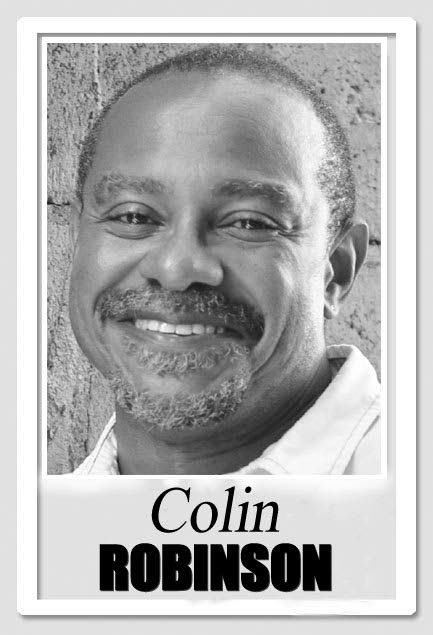Sometimes we use all our choices

Part of being an apostate, you get to be playful. This week I've decided to give in to my sister Akilah's demand, I shut up.
A dear old friend, Natalie Bennett, will chat with you instead:
Our child has two mothers.
He's never known or understood any other reality, and cannot attest to how it is any "different" from say being an only child. He is one of the thousands of children raised in same-sex families, whether from previous relationships or are products of parents like Lisa Melville and Shackiba St Louis.
My son is a black boy being raised by two black women; Miracle, a black girl, raised by two black women. Look around the Caribbean: there's absolutely nothing unusual about that.
The decision to have and raise a child came after many conversations — about values; what kind of child we wanted to bring into the world; what kind of parents we wanted to be; the kind of parents we refused to become; who we'd invite into our journey; traumas and joys that informed who we were as women who loved other women.
Two black Jamaican immigrants with a solid education, personal networks and airport know-how, we drove from Brooklyn to Nebraska, mother-in-law and cat in the back seat, settled into our jobs, and developed a plan.
We'd chosen to live in a state that, soon after we arrived, passed laws against domestic partnerships to spite LGBTI people. But even if the law refused to recognise same-sex families, they couldn't stop people from having and raising children. That's all we needed to know.
Seventeen years later, grown adults who should know better still ask: Who carried the child? It's a version of who is the 'real' mother, thrown at every lesbian couple with a child, identifying who was pregnant and who is the pseudo-father. They delight in looking at all three of us, guessing "who the child resemble." We never confirm.
And who is the donor?
The question comes from being barely unable to refrain from saying what they really believe: "A child needs two parents."
The birth story we told our child was that he came about because of a gift we received — someone who loved us and wanted to help us make a family. He knew his uncle. In recent years, he has chosen to call him father. Their relationship has matured. But the constellation of godparents, uncles, aunties, grandparents, relatives and friends who fortify our family through divorce, illness, and death has remained constant and consistent.
At the time, our best response to that intrusive question was a lie. We got lectured, anyway, about known and unknown donors, regaled with worst-case scenarios for whichever choice people thought we should not make.
We rejected the assistance of the top-notch reproductive technologies facility in the state.
"Infertile."
That was the term used by the uber-competent African-American woman doctor we'd chosen to educate and help us, who was committed to us the minute we walked into that fancy office.
If it wasn't for her matter-of-fact insistence all women who walk into a clinic to enlist her assistance in procuring sperm are so classified, we might have gone along.
Up until that moment, we were sure we'd managed to evade much of the ugliness of heteronormative ways of thinking about families. But permitting for one woman to enter the intimate spaces of our bodies and lives, we did not think we could afford to cede the psychological space of being seen as insufficient and incapable. If we were infertile now, could she ever see us as a real family later?
We never looked back. Ovulation charts. Syringes. Specula of various sizes. Sterile cups. Text messages. Credit cards. Guest room. Twenty minutes from the airport. One weekend. One dollar. One attempt. Pregnancy test.
A Thanksgiving baby.
The birth certificate battle was irritating but short-lived. We wanted to both be registered as "parents" or "mothers". We compromised, so it has one of us named as the mother and the other as the father.
The cultural and political landscape of same-sex parenting in the US has changed over the time I've been a parent. In Invisible Families, Mignon Moore, herself a mother, documents how black women in same-sex relationships raising children require substantial efforts to protect our ability to determine the conditions under which we do so, and the tremendous work to protect our children within a society that often undermines their well-being in order to get back at their parents.
Sometimes that means that we use all of our choices, not just the ones that are making the headlines.
It's hard not to see the power of love, determination and community in the image of Shackiba, Lisa and Miracle on the front pages. The small miracle is that we persist; and slowly change the terms of the debate as we do.


Comments
"Sometimes we use all our choices"